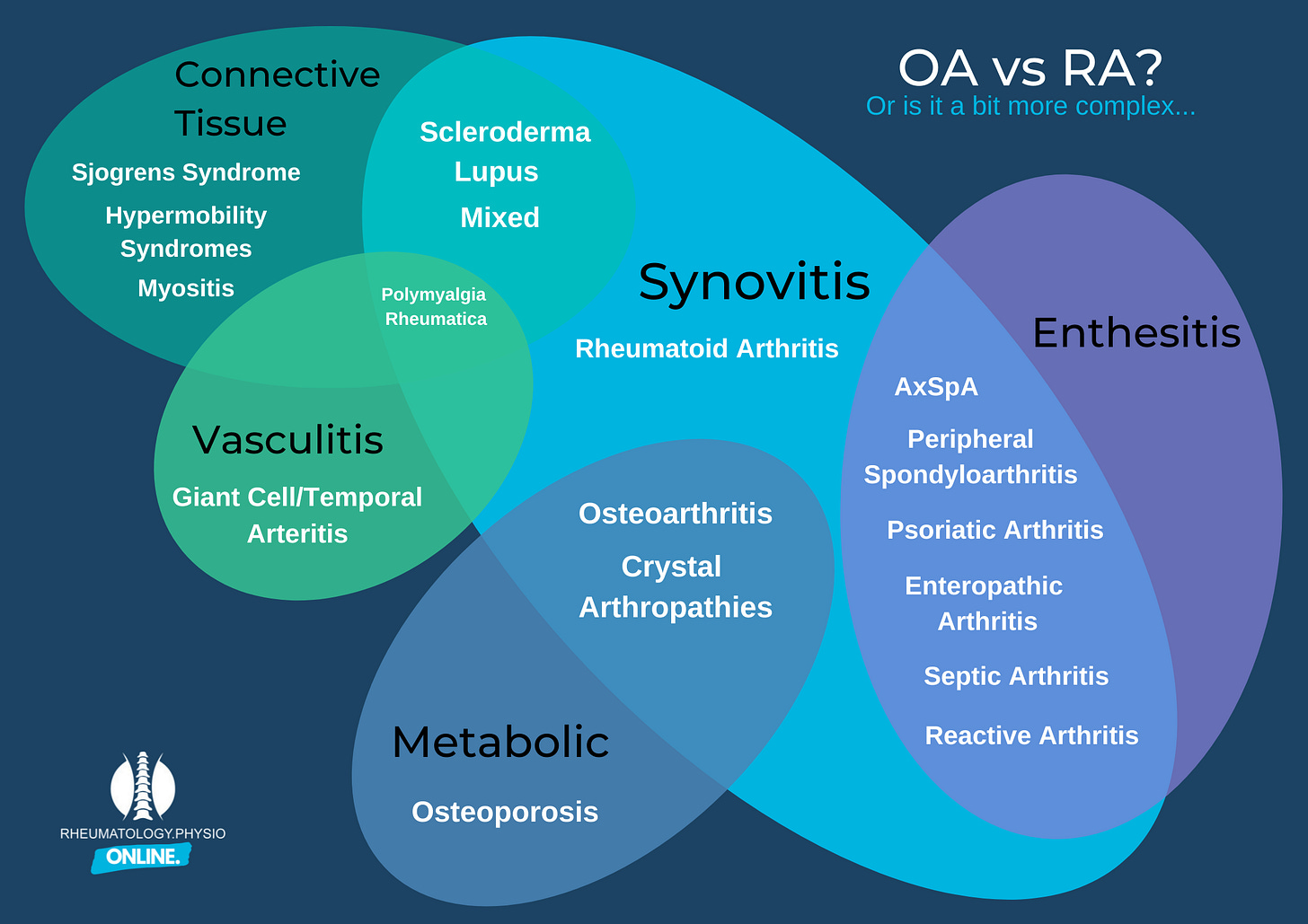Unlocking the World of Rheumatology
A Guide to Recognising and Understanding with Rheumatology.physio
Hello there Rheumatology Fans.
In this article, we'll explore the world of Rheumatology
Rheumatology is a medical specialty that often remains shrouded in mystery for many individuals. For those who experience joint pain, inflammation, or autoimmune conditions, understanding rheumatology is essential. It's a field that plays a crucial role in diagnosing and managing various disorders that affect the musculoskeletal system and immune system.
The Role of Rheumatology
Recognising Rheumatologic Conditions
Rheumatoid Arthritis
Systemic Lupus Erythematosus (SLE)
Osteoarthritis
Ankylosing Spondylitis
Psoriatic Arthritis
The Role of Rheumatology
It's vital to understand what Rheumatology is and why it's so essential. Rheumatologists are medical specialists who diagnose and treat a wide range of conditions that impact the musculoskeletal system, which includes joints, bones, muscles, and tendons. They also address autoimmune diseases like Rheumatoid Arthritis, Lupus, and more.
The field of Rheumatology is vital because these conditions can often be complex and elusive, making them challenging to diagnose and manage. Many symptoms of Rheumatologic disorders can overlap with other health issues, which is why a Rheumatologist's expertise is invaluable in providing accurate diagnosis and personalized treatment plans.
Recognising Rheumatologic Conditions
Rheumatologic conditions can manifest in a myriad of ways, and recognising the symptoms is the first step in seeking appropriate care. It's essential to understand some common rheumatologic conditions and their signs:
1. Rheumatoid Arthritis
Rheumatoid arthritis is an autoimmune condition that primarily affects the joints. It can lead to joint pain, swelling, and stiffness, often starting in the small joints of the hands and feet. Recognizing the early signs of rheumatoid arthritis is crucial, as early intervention can help slow disease progression.
2. Systemic Lupus Erythematosus (SLE)
Lupus is an autoimmune disease that can affect multiple organ systems. Common symptoms include fatigue, joint pain, skin rashes, and sensitivity to sunlight. Understanding the broad spectrum of lupus symptoms is essential for early diagnosis and effective management.
3. Osteoarthritis
Osteoarthritis is a degenerative joint disease that primarily affects older individuals. Recognising osteoarthritis involves understanding symptoms like joint pain, reduced range of motion, and stiffness, especially after periods of inactivity.
4. Ankylosing Spondylitis
Ankylosing spondylitis is a type of arthritis that mainly affects the spine. It can lead to back pain, stiffness, and reduced flexibility. Early recognition of these symptoms is crucial for preventing long-term spinal damage.
5. Psoriatic Arthritis
Psoriatic arthritis often occurs in individuals with psoriasis, a skin condition. Symptoms include joint pain, swelling, and skin issues. Recognising the connection between joint symptoms and psoriasis is vital for timely intervention.
When to Seek Specialist Help
Recognising the symptoms of a Rheumatological Condition is highly important when assessing people presenting with pain and dysfunction. These conditions are principally masqueraders and typically include painful joints, tendons or muscles… I am prepared to bet most MSK Professionals have a caseload of people presenting like that!
My aim is to provide resources and education to help in the recognition and management of Rheumatology conditions. Via this substack, courses via my website Rheumatology.Physio and my YouTube channel.
I hope you will join me on this journey with regular publications starting February 2024.





